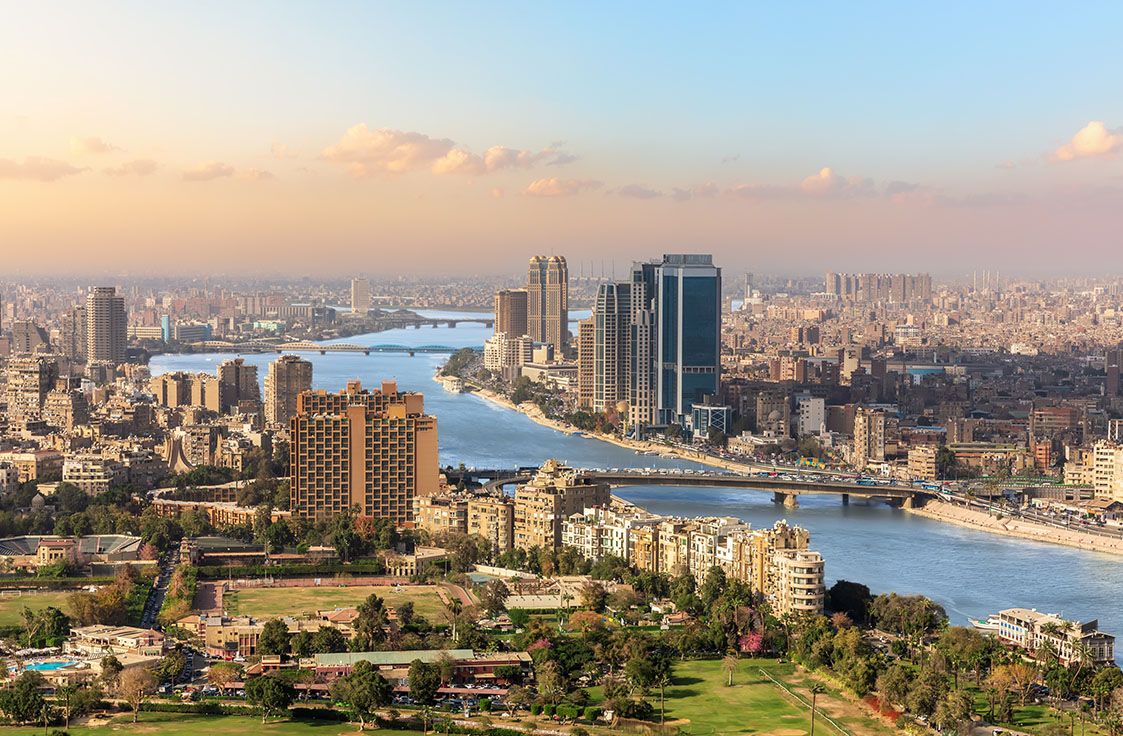
Egypt’s Surging Inflation: What is Happening and How Employers Can Prepare
Birches Group reports on the current state of labor markets that are making headlines around the world, bringing you up to date on the news.
Egypt, Africa’s third-largest economy, has been battling inflation for almost a year. Supply chain issues and tight financial conditions have also made Egypt vulnerable to external shocks.
Egypt’s inflation rose to 26.5% in January 2023, up from 21.9% in the previous month and 8% in January 2022. Steve Hanke, an economist at Johns Hopkins University, estimates the actual inflation rate to be 101%.
A currency crunch
The crisis began in February 2022 with Russia’s invasion of Ukraine. The conflict has severely affected Egypt’s economy. The country saw food and energy prices soar. Its tourism industry, which relies on Russian and Ukrainian visitors, further declined. Foreign investors also pulled out over US$20 billion in investments. The Egyptian government responded to the flight of capital by restricting imports. Inflation, which was at 8% the month before, entered the double digits zone at 10%.
With dwindling foreign currency reserves and teetering on the brink of an economic collapse, Egyptian authorities turned to the International Monetary Fund (IMF) for aid in March 2022.
A new IMF loan
After several months of meetings and negotiations, Egypt and the IMF reached a staff-level agreement in October 2022. (The loan agreement was approved by the IMF’s Executive Board in December 2022 but only publicly published in January 2023.) The IMF would provide a support package totaling US$ 3 billion in exchange for implementing several economic reforms, including:
- Liberalizing the exchange rate,
- Raising interest rates by 2%, and
- Scaling back the economic role of the state and military.
The support package would be gradually given to Egypt within four years, subject to periodic reviews. The IMF loan is also expected to catalyze another $14 billion in funding from international and regional partners.
The shift to a flexible exchange rate
One of the IMF’s conditions for its latest loan was to liberalize the exchange rate. With a permanent shift to a flexible exchange rate, the Egyptian pound’s value would be determined by forces of supply and demand rather than set by the central bank.
To comply with the IMF’s terms, the Central Bank of Egypt (CBE) announced in October 2022 the shift to a flexible exchange rate. The CBE has since been devaluing the Egyptian pound in phases. Since the end of January 2023, it has been trading at above EGP 30. The Egyptian pound lost over half of its value in less than a year.
As a result, the depreciating pound has been fueling inflation and adding to the woes of Egypt’s 106-million population.
An economic crisis
Egypt’s fiscal measures have strained its citizens, especially the poor and middle class.
Egyptians are feeling the pinch. Many imported products are unavailable, and food staples have doubled in price. Tens of millions of people cannot afford basic staples, limiting their spending. Families have been cutting back on meat, medicine, and clothing.
Citizens are complaining about their income shrinking. More middle-class Egyptians have turned to charities for support.
In an opinion piece for Middle East Eye, former investment minister Yehia Hamed cites that nearly 70% of Egyptians believe the government is “doing too little to meet people’s need for an acceptable standard of living.”
How is the government responding
According to the World Bank, the government announced various measures to help alleviate the impact of higher prices on the vulnerable. These measures include revising the minimum wage, delaying adjustments to electricity prices, and extending existing food subsidies and cash transfers. The government has also opened outlets where food is sold at lower prices.
But conditions are still problematic. Poverty is elevated in Egypt: roughly 1 in 3 Egyptians live below the poverty line, according to official figures as of 2020.
What analysts say
The immediate outlook for the Egyptian pound is more challenging, says S&P Global. Experts predict that, over the next 3 to 12 months, the Egyptian pound will trade at 32 to 35 pounds against the dollar.
Analysts also predict that inflation will continue to rise in the short term. The World Bank (WB) forecasts Egypt’s inflation to remain double-digit until the fiscal year ends in June 2023. WB also notes that economic activity and real incomes are expected to be adversely impacted.
What our Market Monitor indicates
Egypt has been on our Market Monitor report since its first publication in mid-June 2022. From mid-July to September, the North African country was at Level Two for two months. Level Two reflects dynamic market conditions where there has been a movement of over 20% in the exchange rate in the past year.
In October, Egypt was dropped from our list of volatile labor markets as the movement in the local exchange rate fell below 10%. Nonetheless, we continued to examine the Egyptian Pound’s exchange rate movement against the US Dollar. Egypt reentered the list in November and remained at Level Two until early January 2023.
In mid-January 2023, Egypt’s level of volatility jumped from Level Two to Level Four. As of the time of writing, Egypt’s exchange rate movement for the past six months is 59.2%, showing sudden and rapidly evolving conditions.
How Birches Group can help
Employers in Egypt should keep a close eye on the local situation, as rapid economic events can drastically impact business continuity.
As inflation rises, organizations must respond proactively to the emerging crisis. In the 15 February edition of our Market Monitor report, we highlight Egypt as a case study of what organizations can do in a turbulent market. Join our mailing list today to learn about our recommendations for special measures in Egypt and other volatile labor markets.
References:
- https://apnews.com/article/inflation-egypt-government-international-monetary-fund-b836f9eace5c95bd40c411c56c272efd
- https://arabcenterdc.org/resource/egypt-and-the-imf-greater-foreign-debt-and-deeper-economic-decline/
- https://documents.worldbank.org/en/publication/documents-reports/documentdetail/099621012192231309/idu0c5d5a70a0938f043180b4d900cb9cfae8278
- https://english.ahram.org.eg/News/487594.aspx
- 15 February Market Monitor
